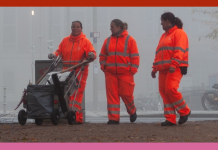Dr Nerina Ramlakhan, physiologist and sleep expert, explores how we can all thrive when working remotely with these top tips
With recent restrictions on working in the office and everyone who can working from home again, we are now presented with a unique opportunity to take charge of our wellbeing and design our own healthy microculture from our home offices. I have put together my top tips to thrive while working remotely.
Start the day right
How do you start your day? Do you reach for your phone first thing? Do you straightaway throw your attention into what’s out there, your inbox, the news, the social media buzz? Try doing it differently – when you become aware that you’re awake, even before you open your eyes, take your own pulse check. Breathe in, breathe out. Ask yourself ‘How am I feeling right now?’ Then move outwards into your day from this place. Remarkable things happen when you start to cultivate a regular practice of self-awareness.
Taking the right kind of breaks
When working from home the temptation is to prove yourself and work solidly. However, this is counterproductive, and it is actually so important to build periods of rest into your day. You will even find that by allowing yourself to take a break your productivity will improve. The ultradian rhythm is simply a rhythm that occurs several times a day, roughly every 90-120mins – this is your Basic Rest Activity Cycle.
After you wake in the morning, you have a period of between 90 and 120 minutes of focused attention. After this time, you will want to “switch off”. You may start to feel woolly in your head. This period of reduced focus lasts roughly 20 minutes. Very often this is the time when people go for a cigarette break at work or make themselves a cup of coffee. Then you come back to work and are able to focus for another 90 to 120 minutes and so on throughout the day. However, now we are all working from home and the temptation to have a chat at the water cooler is no longer available, it is important to schedule breaks away from screens.
Try one or two of these:
- Get away from your desk and screens
- Stretch out your neck and shoulder. Shake out your arms and hands. Relax your eyes and face. Soften your jaw. Relax your belly.
- Take a few conscious deep in-breaths into your belly.
- Walk up and down a flight of stairs or around the block.
- Gaze out into nature or look at a picture of nature or close your eyes and imagine a picture of nature.
- Think loving thoughts about someone who might be going through a tough time.
- Go to the toilet without your phone.
- Drink a glass of water and/or eat something healthy.
Repeat every 60-90 minutes and notice how much more energised you feel as you go about your day.
Online exhaustion
We are now well entrenched in this global pandemic and the new normal that has come with it. Zoom calls, team meetings and other online applications have allowed us to communicate but with these new routines comes new fatigue and pressure points.
Online meetings can be draining and exhausting, here are a few tips to help you optimise virtual communication and to stop burn out:
- Get grounded before you go online. Feel your feet on the ground, you bottom on the chair. Reconnect with your physical self.
- Do a pulse check before you dive into the meeting or consultation. I like to invite everyone to take a deep breath in, breathe out and then check in ‘how am I feeling right now?
- Use eyes, smile often, think about the tone of your voice and vocal prosody, posture and breathing are key – all of this creates connection, trust and safety. When we connect with others we produce the hormones of oxytocin and serotonin which enable us to truly relate to each other.
- Get out into nature afterwards to counter the effects of being online.
Experiencing anxiety or loneliness?
While many may find working from home a welcome break, some may find being alone brings anxiety or loneliness. There are many ways in which we can counter these feelings and a good place to start is building yourself a strong support network and setting healthy routines.
- Develop personal networks – Create your own network of colleagues to check out information and provide you with moral support.
- Self-Regulate – Self-regulation will allow you to know how you are feeling at any given moment, and if what you are feeling is less than desirable you can find the inner resources to be with that uncomfortable feeling or access a more helpful emotional state.
- Stay fit for the job – We have evolved as an active species and as such we need physical activity to keep stress in balance. Try to engage in some form of aerobic activity at least three times per week.
- Manage food stress – Start the day with breakfast, especially if you wake up with anxiety, and then eat little and often throughout the day – particularly if you are going to be working long hours. Keep healthy snacks (nuts, fruit, bagels) with you and avoid going for the quick fixes such as caffeine or sweets. Try to drink at least 2 litres of water per day.
Staying productive
Working from home can have a huge impact on energy levels, because it blurs the lines between personal and professional which can leaving us feeling unable to switch off and struggling to follow a healthy routine.
Your sleep before midnight is the most restorative phase of sleep, so try to get to bed before 10pm at least 3-4 nights a week in order to get really deep, nourishing sleep that sets up your energy levels for a happy and productive day.











